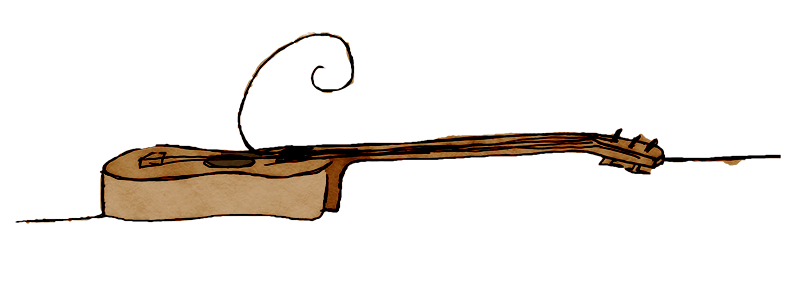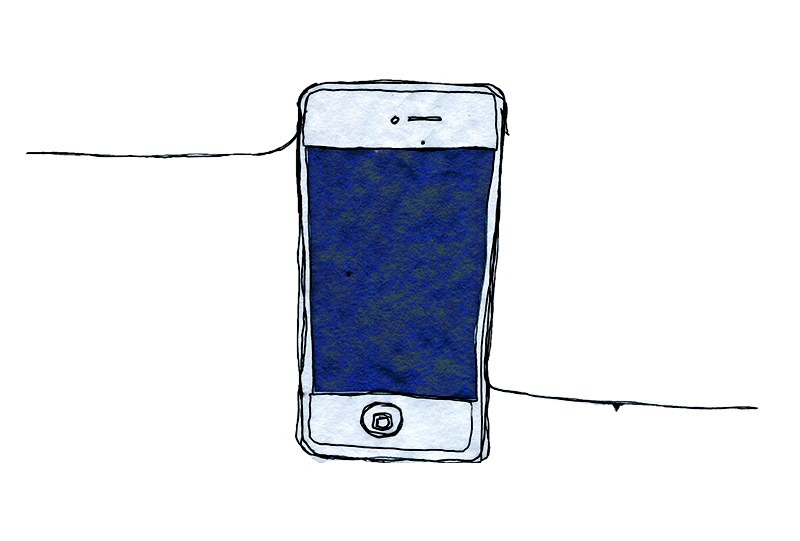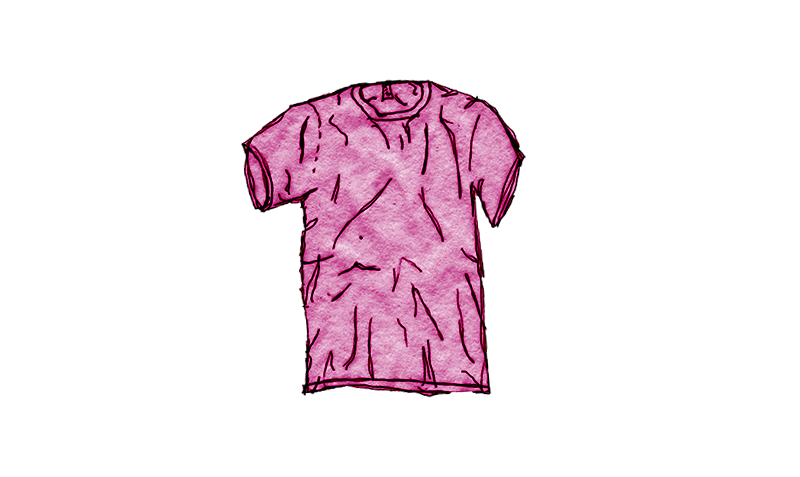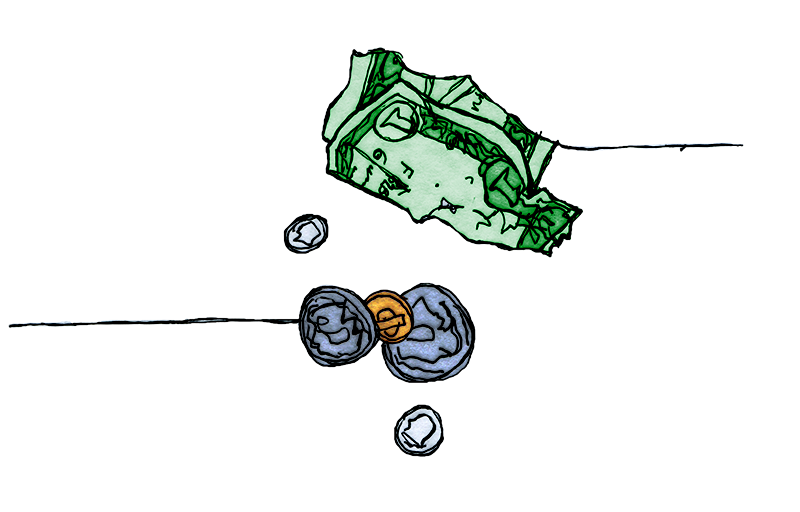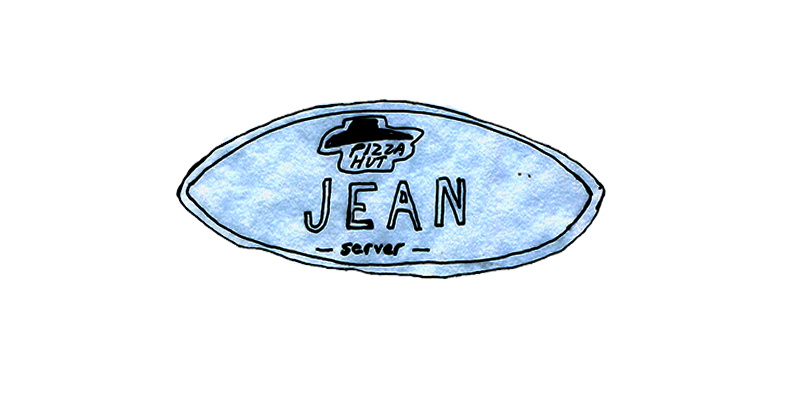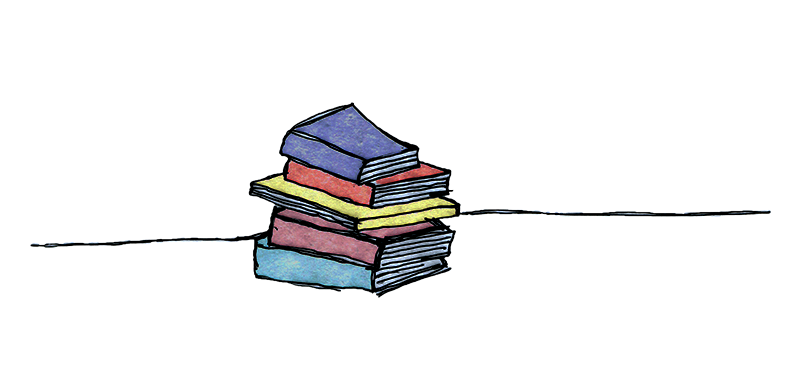I sat on my tall stool behind the counter in my parents’ music store, looking past my open history textbook to the dirty snow and paper trash blowing down the street in the darkening afternoon. A lone figure shuffled down the opposite sidewalk, past the jewelry store, and stopped on the corner in front of the drug store at the stoplight, his helmeted head cast down, waiting for the traffic light to turn. I scanned a few more paragraphs in my textbook until he entered, heralded by a chorus of automated door chimes and blown in by a gust of frozen air.
“Hi, Louis,” I said.
“Hi, Jean,” he replied in his high, mournful voice, trudging past me toward the back room, the coldness radiating from him reeking of tobacco, metabolized beer, and body odor. In the back room, where the rental band instruments were stored on shelves next to the desk and filing cabinets on a black wall painted with the rainbow and prism from the cover of Pink Floyd’s Dark Side of the Moon, the vacuum cleaner wheezed to life.
A stooped man in his 50’s with thick, dark hair and beard and sun-weathered skin, who suffered from mild paranoid schizophrenia, who never dressed in anything other than his uniform of navy work shirt and pants, aviator sunglasses, a cigarette hanging from his mouth (to chew on rather than smoke), and a yellow construction worker’s helmet to protect his head from unfriendly projectiles, Louis was the only homeless person in Grafton, North Dakota. I had known him my entire life, all 14 years of it.
For the next 30 minutes or so, while I read my book and dusted the keyboards, Louis slowly pushed the vacuum cleaner around the not-particularly-enormous store, over the woolly bright blue carpet in the back and the flat, industrial-gray carpet in the front, then put away the vacuum and disappeared into the bathroom for a long time.
“Four dollars for vacuuming,” he reminded me, quoting the small curling laminated sheet on the bulletin board in the back that listed his daily chores. I counted out four singles from the till and recorded them in a small notebook. By then it was totally dark, though only about five o’clock. Some business owners paid Louis in Hardee’s coupons so he wouldn’t spend their money on alcohol, but we paid him in cash for vacuuming and mopping and squeakily washing the windows. A phobia of signing his name on anything, lest he be tricked into returning to the state mental hospital where he had been taken against his will for observation years ago, prevented him from doing any kind of work involving a W-2 form or a paycheck, or receiving the disability benefits to which he was clearly entitled. “They could do anything to you!” he had told me more than once.
Unkindly, I hoped Louis would not become talkative, as he could become very long-winded, and much of what he said was sad or disturbing, but if he did I would listen. “Wow, that’s horrible,” I would say as he told me the things people had done or said to him, or thrown at him, dismayed at how cruel even adults could be. “Screwy Louie,” some otherwise nice people called him, or just “Louie,” though we called him by the more dignified “Louis,” which he preferred.
But he just slowly pocketed his money and walked back into the street-lit darkness, off on the interminable trek to the bus barn behind St. John’s Catholic Church, where he lived. Relieved, I began the rituals of closing, turning off lights and hoisting the long wooden plank that barred the back door on the side of the building, until only one dim fluorescent bulb in the front of the store remained to light me until my ride came and I locked up.
Valley Music stood on the corner of Hill Avenue and Fifth Street, opposite the drug store, with Polly’s Lounge on one side and the Chamber of Commerce across the intersection. Hill Avenue is a main street just like the Main Street of any little town anywhere in the U.S., which is to say that it is composed of century-old brick buildings with flat roofs hulking together along the several blocks that constitute “downtown”, with frills of decorative patterns adorning the jagged skyline, 1888 or 1910 carved in the middle of a diamond or starburst on some of them, and that today as many of the storefronts are empty as not.
Although it had once been a source for car stereos and record needles, cassette tapes and harmonicas, by 1997 our store no longer made very much money from foot traffic. Taking piano lessons or learning guitar, singing solos or picking up a recorder were pursuits going the way of brick-and-mortar family businesses, the way of Reyleck’s department store and the electronics repair shop: all the detritus of an analog era. Tapes and CDs were not profitable. A decade after opening the store, feeling restless, my dad had gone to graduate school and begun a new career as a school counselor, a position shared among the smallest schools in the region, driving to different towns each day to present on positive self-esteem and “Skills for Adolescence,” toting the puppet Marvel S. Moose and the bear Spinoza. He also taught one section a year of high-school French on closed-circuit television.
Perhaps that might have been the end of the project, but the store had entered a new phase of life — my mother had made her own very successful career shift from teaching choir to selling pipe organs to churches, and while pipe organs might also seem like relics of a bygone era, the handful of manufacturers that remain generate surprisingly impressive sales even today. Valley Music became the showroom and storage facility of the digital organs waiting to be sold or installed. My parents hired a full-time employee, Susan, to run Valley Music on weekdays and make sales calls to churches in North and South Dakota, though my dad still repaired guitars and school-band instruments.
Although as a child I went to the store almost every afternoon after school to play or read, in eighth grade I turned 14, which allowed me to become an officially paid employee of Valley Music. From 3:30 to 5:30 a few days a week after Susan picked up her children, and on the occasional Saturday, I watched the store myself.
I was five feet tall and weighed one hundred pounds, and I was in charge!
In the glass cases of the front counter shone neat rows of finger picks and regular picks and pitch pipes and metronomes. Under the counter was a wooden box with individual guitar strings, steel and nylon, EADGBE. “Do you know which one it is?” I would ask mothers who came to buy replacements for their sons’ broken strings, as if I had always known that the different pitches were produced by different widths of strings. “Is it high E or low E? This one, or this one?” When people paid with credit cards, I placed a fresh carbon paper set in the manual machine and then pushed hard as I slid the lever over the card to imprint it on the paper so that my dad could call it in later. I rang up sheet music of Celine Dion and Lorie Line arrangements: pure schmaltz, though I was not long past the age of liking it.
I always daydreamed that, instead of Louis, boys from school I liked would come to the store to buy something or have their band instruments repaired. “What are you listening to?” they might ask, and we would have a very romantic and meaningful conversation. But apart from the occasional guitar or piano student taking a lesson in the back room, the store was mostly empty.
Instead, the second-most regular visitor was a middle-aged man who worked at one of the group homes surrounding the state institution for the intellectually and developmentally disabled, which was on the other side of the park if you traveled down Fifth Street. He had two charges, both older men with big glasses and vague smiles and pants pulled up high over their large bellies, who would trail after him as he strode to the guitars on the wall as if it were his family’s store.
“Hi. Can I help you?” I would always ask, even though they never acknowledged my existence. He would put his foot up on a bench and play some intermediate-level rock licks while the group-home residents bobbed dreamily along the rows of sheet music, sometimes talking softly to themselves. Invisible to them, I would return to my algebra homework, fuming at the caretaker’s rudeness. He would stay for what seemed like forever, going through his repertoire of songs.
They never, ever bought anything — not a guitar, an amp, a cord, a book of chord charts for classic rock hits, not even a plastic pick, which cost 30 cents.
•
In a widely discussed Atlantic article, “Have Smartphones Destroyed a Generation?”, Jean M. Twenge asks, “Why are today’s teens waiting longer to take on both the responsibilities and the pleasures of adulthood?” Finding that technology and social media have contributed to young people reaching traditional adolescent milestones later, to their apparent detriment, Twenge notes that work is among the areas transformed:
Independence isn’t free — you need some money in your pocket to pay for gas, or for that bottle of schnapps. In earlier eras, kids worked in great numbers, eager to finance their freedom or prodded by their parents to learn the value of a dollar. But iGen teens aren’t working (or managing their own money) as much. In the late 1970s, 77 percent of high-school seniors worked for pay during the school year; by the mid-2010s, only 55 percent did. The number of eighth-graders who work for pay has been cut in half. These declines accelerated during the Great Recession, but teen employment has not bounced back, even though job availability has.
Even in the mid-90s, things looked very different. I loved making money and had already been earning for a few years when I started at Valley Music. While today leaving an 11-year-old home alone, let alone in charge of younger kids, is no longer even legal in some states, when I was that age neighbors and family friends would regularly pay me and other fifth-grade girls to guard their children. It must not have been anomalous — all the members of the fictional Babysitter’s Club, a series I adored, were between 11 and 13, though the plots made them sound more like high-school seniors.
I remember the houses better than I remember the children, though most of them were just ranch houses like ours, Midwestern middle-class, with finished basements littered with Legos and dolls. Clean, with some books in built-in shelving, wall-to-wall carpet, and dried flowers in a bowl in the bathroom or the hall. The only house that was notably different, one I didn’t start sitting at until a few years later, was an actual mansion out in the country, owned by a wealthy family from church. The all-white sunken living room had fancy red and gold throw pillows with tassels and floor-to-ceiling windows looking out on trees. Supposedly, the wife had once asked my parents if a person could buy just the shell of a grand piano without the heavy apparatus of strings and hammers inside that made the music — none of them played, but she liked the elegant look of a piano.
I would not babysit for actual babies, though I was sometimes asked. The only exception was a family down the street with a daughter two years younger than me; I was responsible for the two middle children and she watched her baby sister. It wasn’t a very fair arrangement. Once the second-littlest girl behaved so badly, stamping her feet and screaming in the cluttered kitchen and saying bad words, like bitch and bastard, that I called the mother, who was recently divorced, and she came home from work. The other image that remains is another neighbor toddler, a tiny child with wispy hair who could not stop drooling. All evening she waddled around, not seeming happy or unhappy, saliva cascading without cease from her open mouth and down the irritated skin of her chin.
I think I made two or three bucks an hour, later four, thrilling piles of folded bills produced from a parent’s purse or wallet. Neon dollar signs flashed in my developing brain while I demurely thanked them. Rich! I’m rich!
The store did bring one important boy, though not a boyfriend. My parents hired a quiet ninth-grader with chin length pale hair and a voice as deep as an adult man’s, who I had met during the junior-high play, and who was part of one of the town’s only Mormon families, children numbering in the double-digits, with odd old-fashioned names, a family so large it drove around in a retired airport van. I didn’t know until we were adults that he was gay — apart from owning a dark pink T-shirt, he didn’t fit any of the juvenile stereotypes that caused other boys to be singled out. I just knew that we hit it off and could laugh for hours or talk about serious issues but had zero interest in dating each other. We bonded over the pop-punk bands we liked, Rancid and MXPX and NOFX and Green Day, and stranger and more sophisticated music like the Dead Kennedys that we learned of from his older brother. We were earnest and rule-following and studious, mostly, oblivious to how far we existed out of the orbit of our musical heroes, but their hoarse energy lit up my school nights and jangled in my veins.
All the kids in high school had part-time jobs, it seemed. It wasn’t a class thing; even kids from comparatively wealthier families could be seen working at the autobody shop or ringing up gas. Maybe it was a hangover from pioneer ancestors, the possibly insane people who cultivated the treeless land and made their way through eight months of winter living underground in sod houses and managed not to freeze in blizzards, or in the case of many of the Latino kids, parents or grandparents who first came to town as migrant farm workers. Maybe it was a sort of manic generic Protestantism.
Maybe it had to do with cars. In North Dakota at that time, you could get your driver’s license at 14, and the main entertainment in the evenings was cruising. Old dented cars from the ’70s and ’80s paraded slowly around a traditional circuit through town, with detours into the parking lots of the gas station or bank to gossip or flirt or fight. I was timid and waited until 15, but my best friend, a tiny girl with braces and freckles, lived on a farm and already had an old, sky-blue Buick to drive to school and later to her own job at the video rental store. Gas cost like a dollar a gallon.
Working was also a social thing; after going through every year of school with the same small cohort of classmates, I was eager to meet people — boys — from other grades and other towns. At five thousand people, Grafton was the biggest town in the immediate area.
Later in eighth grade, I also got a second job at Wally’s Grocery Store. After receiving my purple polo shirt and watching training videos about how to distribute items of different weights in grocery bags and how to avoid workplace accidents, I learned to operate the cash register. For my first whole week of work, I was haunted by the phantom beeping of cereal boxes and milk gallons passing over the scanner for hours after I’d been home. I memorized produce codes: BANANAS 4011, TOMATOES 4064, ONIONS 4663.
The place was air-conditioned and cheerful and smelled like fried chicken and sugary donuts. Hits of the ’70s, ’80s, and early ’90s played on looping tapes. It seemed very large, like its own little city. Citizens in purple shirts bustled around pushing brooms and carts and efficiently pulling cans and boxes to the front of shelves. So many people worked there, adults and kids, that I did not know everyone’s name.
I did meet boys there, most notably my friend’s older brother, the owner of the Dead Kennedy’s CD. I thought he was the most fascinating, intellectual, funny person I’d met, though I was disappointed to learn that he obeyed his parents’ dictum against dating before 16. Sometimes I would get to help him stock dairy in the cooler, donning a heavy blue coat made for a large man before shoving cartons of milk and whipped cream through slots in the wall of the frosty silver room. Once, thrillingly, we sat in the giant family van during a break, laughing until our stomachs hurt and talking about music.
•
Other money-making schemes occasionally presented themselves.
One winter, the photographer whose studio was down the block from Valley Music hired me to catalog negatives, 15 years’ worth of family photos and senior portraits, orange envelopes full of images of babies and pets, stored in long, narrow cardboard boxes in the basement of his studio. I would load a few boxes at a time into the back seat of my parents’ Oldsmobile and sort through them at home on the couch while my brother practiced the piano, inking a new number onto each envelope and typing the number, date, and last name into a spreadsheet in case customers wished to order new prints of their old memories. My family’s bulky gray Macintosh laptop sat heavily on my pajama-clad legs as the wind screeched along the siding outside.
One of my tasks was to condense the contents of the boxes by throwing away extra proofs, the sometimes-extensive record of each photo shoot from which the clients choose their favorites to have enlarged, the eyes-closed or mouth-hanging-open or not-looking or babies-crying photos, and the nice ones that would become framed treasures. Flipping through stacks of 4x6s, I recognized many people my family knew. The photos spanned most of the ’80s and ’90s. The best were the old graduation photos: teen girls with massive leonine perms and acid-washed jeans standing with their hands awkwardly on their hips, boys with braces and feathered hair and aviator glasses, their painful-looking acne not yet retouched. Frosted lipstick and ruffled dresses, bright eyes and mullet haircuts. For families spending more money, the custom was to get a variety of photos in different outfits and representing the graduate’s interests. The subject would pose swinging a flute or a baseball bat above his or her shoulder in front of an artistic batik background, or sit with one knee up on a field of white, surrounded by all their artifacts at once, hockey nets and trumpets and paintings, or karate-kick menacingly at an unseen opponent. One boy posed, grinning, with a life-sized Gumby doll.
Sometimes it made me feel precociously sentimental. All of them had grown up in the same little town or one of the identical ones nearby, through the same cold winters, and had gone on to whatever was next. Everyone, I understood at 16, had been young and goofy and hopeful once, and I, a stranger, was privileged to witness their past selves. All the beautiful girls and handsome boys, all the bumpy skin and sequined prom dresses and proud letterman jackets and pickup trucks and attempts at winsome smiles, along with all the families in matching clothes and the dolorous, red-eyed basset hounds and the babies stuffed artistically in porcelain bowls who were now teenagers, all the mysteries of other people’s lives, I tossed into brown paper grocery sacks on the floor, to be thrown with a clang at the end of the night into the metal trash can behind our garage.
In The Overspent American: Upscaling, Downshifting, and the New Consumer, otherwise an extremely prescient book, Juliet B. Schor decries the trend for middle-class teens of the 1990s to get jobs to bankroll unnecessary consumerism. Increasingly, since the ’80s, “Suburban high school students took on jobs and worked longer hours,” she reports. “Never mind falling asleep in class, doing poorly academically, or missing out on extracurriculars. Having money to spend at the mall had become more important.”
Most of the students I knew did both extracurriculars and worked and still did fine or even well in school. (I’m sure it helped that our school wasn’t all that academically rigorous; I rarely had homework.) I still ran cross-country and took piano lessons and Tae Kwon Do class and read recreationally. I spent many hours a week at my boyfriend’s house, a different boy who worked at the gas station and at the fireworks tent in July. I lifted free weights at the gym. I went to sleep by 10:30 on school nights, undisturbed by text messages, which did not yet exist. I took blissful naps in front of 90210 reruns in the afternoon in the basement where my family’s single TV was.
Even with all that activity, I still always felt a surging surplus of energy, maybe just the superhuman energy of being a teenager in a crushingly dull place, a forlorn, otherworldly landscape with sparse trees. In the winter, all the hours that were light seemed to be spent in school, yet somehow it seems like there was more time then. I can’t explain the math of my teenage life, though photos and art projects and muscle memories remain. There was still time to be lonely. I felt like adulthood and freedom and whatever awaited kept receding beyond my grasp, on and on into the future. Working helped fill the time.
At 16, I was legally allowed to carry mugs of draft beer to customers, and so I got my most lucrative gig yet — waitressing at Pizza Hut. The warm, greasy air carried the scent of mozzarella cheese and sugary marinara sauce and the excitement of earning. Some nights I made as much as $35 beyond my hourly wage. I felt like I had the Midas touch.
The large, square room was carpeted in dark green and lined by red vinyl booths made cozy by the intimate glow of hanging green-shaded lamps and thick red curtains on the windows looking out on the highway. An invisible fault line bifurcated the room down the center into smoking and non-smoking sections, though at its boundaries a person in a nonsmoking booth could have smoke blown into his or her face from the next table over.
I rushed around from table to table, carrying trays of Mountain Dew and Pepsi and heavy stones heaped with Meat Lover’s pizzas. The smallest men’s size of the red and black polo shirt uniform was far too large and billowed above my apron that was stuffed with straws and rolled silverware and crumpled one-dollar bills. On the vacated tables, I would collect folded tips and sometimes neat piles of quarters or scattered change. A large party could leave ten or even 15 dollars.
“What would you like to drink, Sir?” I would ask little kids.
“Did you hear that?” their mothers or fathers would nudge them. “She called you ’Sir‘!”
I liked waiting tables. Most people were nice to me, especially families. “You have the nicest smile,” people would tell me. “You just seem so happy.” And it was genuine. They were happy to be out to dinner and I was happy to help them, and at the end I got paid. The jukebox was always playing, and there were free bread sticks and interesting coworkers. There was Antone, the first openly gay man I’d met, a gorgeous Latino guy in his early 20s with perfectly executed eye makeup and impeccable eyebrows; Ashley, a girl from another town; and our boss, Maher, who grew up in Palestine and learned English as a teen from MTV. My Mormon crush worked in the kitchen, though we were both dating other people by then.
“We left a little something for you,” one group of elderly women told me conspiratorially after lunch with a big smile, patting my arm on the way out. We had bonded over their personal pan pizzas and they had made sassy jokes, a group of girlfriends out on the town. When I got to the table I found a stack of coins — 50 or 60 cents in all. But it was kindly meant. Others, like the Mennonite family that owned a nearby auto body shop, the men in plaid shirts and suspenders and the women in gingham dresses with black caps pinned over their upswept hair, tipped well for their fiesta taco pizzas.
At the end of a shift, after vacuuming up the night’s blizzard of shredded lettuce and straw wrappers, I would proudly (or sometimes disappointedly) write my tip total in the box on my time card. I thought for a long time that I made the highest average, and maybe I did, but then I learned that some people underreported to avoid paying as much tax, a foreign idea to me.
There was one regular none of the girls wanted to serve. The father of two boys who worked in the kitchen, he would eat alone in his booth. “Hello, Jean,” he would say in his high, soft voice, his pale eyes reading your name tag and looking searchingly into your face. (In those days I went by my middle name.) Until you could take his order and get away, he would repeat your name many times in conversation, grinning over his long frizzled beard as he looked you up and down. His sons, who were quiet, smart, and respectful, must have been painfully embarrassed, but they always seemed to treat him kindly.
Some weeknights were empty, with nothing to do but fold silverware and play the jukebox and suck on the round red-and-white peppermint candies until their corroded surface abraded my tongue and my mouth hurt. Others were inexplicably frantic.
One night, people kept coming and coming in from the cold, in twos and threes and fours and fives, people who needed chairs and forks and menus and red plastic glasses of soda. “Free refills! Does that mean I could order one drink and get four small glasses to share with my kids?” people sometimes wanted to know. “Can I have a frosty mug for the Bud Lite?” The windows were steamy against the frost outside, the air warm and greasy. I rushed around mindlessly, anxious to keep finding newcomers who needed seating, standing dripping melting snow onto the brown tile at the entrance, pausing only to listen to the soothing gush of the soda fountain and watching the sparkling CO2 bubbles fizz in pleasing acid yellow and syrupy dark brown clouds that crackled back down. I pumped endless plastic cups of marinara sauce and hurled dirty plates and crumpled napkins into gray plastic tubs, pocketing tips without counting them.
Finally, when I came to a stop, I found the two other servers on duty that night glaring at me, a short pretty girl my age with a long blond ponytail who drove in from the next town over, and a gaunt middle-aged woman with layered dark hair and thick eye makeup behind her silver glasses. “If you take another table, you have to mark it on this,” one of them announced, pointing to the blank back side of a children’s placemat, where they’d written our three names. Until I saw the hatch marks they’d drawn, I hadn’t realized how many more tickets I had than they did. There wasn’t any real system or sections in place. “It’s not fair. You’re hogging the tables.”
I stared at them, confused at first as I looked at their smug faces and angry eyes, my own face hot from hurrying. Then I was furious that they hadn’t just said something earlier. I was not trying to “hog” anything! At the end of a night of being surveilled by tallies, after putting on my winter coat, I scooped all of my tip money from my apron and laid it on the counter in front of them. “You can have it,” I said, and walked out.
It turned out that I hated criticism more than I loved money.
When I arrived for my next shift that money was waiting for me in an envelope. “It’s not your fault. They should have hustled more,” my boss said nicely. Those women were a little nicer to me after that, but I stayed mad. Then, much later, I felt ashamed.
The money probably meant something much different to that older waitress than it did to me. Working with adults was eye-opening. Many of them were managers, but some were doing the same work as the kids. Some were kind and parental and well-organized; some swore too much and smoked too much and made crude jokes and seemed to see themselves as the peers of teenagers, though they had chaotic personal lives that caused them to ask us to switch shifts with them. When customers were rude to me, I felt self-righteous in the knowledge that I had near perfect grades and was president of Key Club and was in the advanced math classes and had read David Copperfield on my own over summer vacation and was clearly moving on to other things when I was old enough. “I don’t have this job because I’m dumb, I have this job because I’m in high school,” I told my parents when I described those interactions, rolling my eyes. But of course plenty of the adults at Pizza Hut and the grocery store were not dumb either.
Once, on a school night at the grocery store, a manager asked to speak with me in the break room, a gray windowless room with a small television in one corner and various compliance notices stapled to a bulletin board near the time clock and lockers, a few round gray tables with crumbs from other people’s dinners.
After closing the door, he looked compassionately at me and told me that he too sometimes had problems with depression. “It can help to know that you are not alone,” he told me. A small man in perhaps his late 30s or early 40s, maybe a little effeminate, he had never spoken to me about anything other than boxes to unpack or tills to balance.
I was totally unprepared for this.
“I’m just worried that there could be another war in Iraq,” I said, mortified, though also conscious that he had trusted me with something important about himself. “My boyfriend is signed up to go into the Air Force after he graduates.”
“Okay. If you ever need to talk, I’m around.”
After that, seeing him moving about the misty foliage of the produce section, apparently cheerful, I wondered what his life was like. Most people commented on how happy I always seemed, but he had seen something about me that was also true, and that was disconcerting.
Apart from the photo filing job, which was finite, I kept all these jobs on and off through high school, working sometimes at Valley Music, sometimes Wally’s, and sometimes Pizza Hut.
Senior year, I became one of the few girls who also delivered pizzas, thinking that it might be interesting and that tips might be good. They were not. “You can keep the change,” people would say as they wrote a 13-dollar check for a $12.50 order. But it was interesting, finding people’s houses pre-GPS. The town was on a perfect grid, so the house numbers showed their location, and I memorized the order of the avenues — McHugh, Western, Griggs, Cooper, Burgamott, so on. Even in a small town there were so many people I didn’t know and so many houses I’d never noticed.
Sometimes men opened the door to dark and dirty houses that reeked of smoke, surprised to see a small girl in a winter coat holding their pizzas in a red zippered bag and trying to look stoic. Sometimes this spooked me, but nothing ever happened.
I liked driving around in the delivery car, listening to the classic rock station. My favorite songs to hear on the radio were “Surrender” by Cheap Trick and “Take It on the Run” by R.E.O. Speedwagon: romantic, nostalgic songs from someone else’s youth, maybe the kids in the old senior photos I threw away. Both songs still remind me of frigid, snowy nights in the car.
•
I had a sparkly, royal blue deposit bag from Bremer Bank where I put my paychecks and tips. When a few had accumulated, I added them up with a calculator and recorded the amounts on a deposit slip from my checkbook.
Where did all that money go? On one hand, the amounts of money I’m describing now seem so small as to be quaint. When I started working, the federal minimum wage had just risen to $5.15. On the other hand, I worked enough hours that it would have added up to a lot of money, since I had no living expenses. I didn’t drive enough for my parents to demand I pay for gas. I did not even have to contribute to my future college expenses — my dad had somehow amassed an impressive fund over the years. I was allowed to choose any college that he could either pay for in full or that I could reduce the tuition for through scholarships.
As much as I enjoyed earning money, I had zero grasp of its relationship to adult life. I drove my parents’ cast-off Oldsmobile ’88, a dented behemoth identical to the one owned by my grandparents, and had no idea what a car cost. I didn’t notice gas prices. I didn’t know what college cost or how much my dad had saved. I could not have made even a ballpark guess of my parents’ annual income or what would be considered a good or poor salary for an adult.
Money was just energy, I guess, and affirmation — another thing to be good at. Once I got my periodic jolt of it, I didn’t think deeply about how much I had. It was always enough for anything I could think of to want. “If you want it, you can buy it with your own money” had been an oft-repeated phrase in my childhood, and pretty much the extent of my financial education at home, at least that I remember.
I was not actually good at money, though it took me years to know that. All of it dribbled away, check by check — I paid in checks — to mall stores in Grand Forks and a record store called Disc and Tape that sold second-hand discs. I had a cardboard shoebox and a small wicker hamper full of CDs and bedroom walls papered with torn-out pages from SPIN Magazine and Teen Magazine, to which I subscribed. I had a tangle of clothing that would no longer be fashionable — wide-leg carpenter pants, tight sweaters from American Eagle, thrift-store kids’ T-shirts, cheap jewelry from Claire’s, winter caps in various colors, skater shoes though I didn’t skate. I had a lot of beauty products. I had paperback books and plastic barrettes and multiple piercings on the side of one ear, and nail polish in black and purple and blue and glittery green. I had a vintage Mötley Crüe poster I bought on eBay that made me laugh. By the time I started college, I had about three thousand dollars of money I’d earned, which at the time seemed good, but now seems embarrassingly paltry. Pink Floyd sang that money is a “gas”, and mine dissipated into the ether as if it really were.
•
“I didn’t want you going to work in eighth grade,” my dad told me when I asked him about it. “But you really wanted to get a job.” I hadn’t known that; it made me sad to hear. I don’t know whether it was that he wanted my main focus to be school, or that he thought I was growing up too fast, or that he didn’t want other people to think that his daughter “needed” to work.
But I’m glad my parents did let me.
Sometimes I have wished I had grown up somewhere else; sometimes I envy my friends and, now, my own students, their Advanced Placement classes and Model U.N. and Saturday SAT tutoring. I’ve wished I had been on a school newspaper, that someone in-the-know could have coached me on my college application essays. I have regretted not getting to take World Religions or Latin. Most of all, I wish that some adult had thought to suggest that someone who enjoyed reading so much might also like to try her own hand at writing.
But why should I have had those things rather than anyone else? And was what I did instead by comparison worthless? In his wonderful book The Mind at Work: Valuing the Intelligence of the American Worker, Mike Rose addresses the bias in American culture against work that involves the body and not exclusively the mind, a prejudice reflected in the writings of Plato and Aristotle and even in the Bible. He profiles waitresses and hairstylists and plumbers and electricians to show how much skill and intelligence their work requires. He examines the “tension [in American culture] between practical life, experience, and common sense versus schooling, book learning and intellectual pursuits.”
He writes movingly of his mother, who supported her children and ailing husband by working as a waitress, and of his uncles, who made careers with the railroad, and notes the social injustices perpetuated by dismissing whole fields of work as “unskilled” or “mindless”. As much as I agree with sociologist Juliet Schor’s polemic against consumerism — everyone should read it — her assumption that it’s inherently negative for “suburban” kids to get jobs if they don’t have to reinforces artificial class distinctions about what kind of work is appropriate for different groups.
One of my longstanding resentments against my hometown is the pervasive scorn that so many kids and adults, including even a few of the teachers, seemed to hold against “book learning and intellectual pursuits.” But I also would have missed out if my parents had insisted that school was the only activity of value.
At home we read the New Yorker, the Atlantic, Newsweek, and the Grand Forks Herald and took regular trips to the library. We traveled to other cities to visit art museums, symphony concerts, and plays. I had the chance to become reasonably culturally literate and to have some sense of life beyond our small town. Compared to some of my college classmates, my family was not “wealthy,” but I was privileged. Going to work sanded off some of the arrogance and entitlement that bred.
In The Mind at Work, Rose writes that his mother, an Italian immigrant who went to work early and lived through the Great Depression, had been shy and sheltered as a girl, and that one of the things she always said with pride about waitressing was that it had taught her to “be among the public”. He includes the lovely lines from Studs Terkel’s iconic interviews from a waitress who asked, “How else can I learn about people? How else does the world come to me?” He also quotes Marge Piercy’s classic poem “To Be of Use”:
The work of the world is common as mud.
Botched, it smears the hands, crumbles to dust.
But the thing worth doing well done
has a shape that satisfies, clean and evident.
Greek amphoras for wine or oil,
Hopi vases that held corn, are put in museums
but you know they were made to be used.
The pitcher cries for water to carry
and a person for work that is real.
I don’t think I can improve on any of those iterations. As an adolescent I was so impatient to be an adult and autonomous, and there are obviously far worse ways to try on that role than standing behind a counter and counting people’s change. Girls were more likely to be waitresses and checkers than cooks or bag-boys, but carrying boxes around and bagging groceries and driving a delivery car and wearing baggy, unflattering unisex polos offered the chance to do work that wasn’t necessarily gendered and to get away from a vision of myself as precious and ornamental and in need of sheltering, to learn that I didn’t need to be afraid to talk to adults or boys or men or homeless people. Boys were the scariest, but work was a chance to get to know them in a nonsexual and nonromantic context, an important education in itself. It was a chance to make myself useful. Even if I squandered my pay, wading through all the teenage crap like Blink 182 was worth it to get to Pavement and the Pixies. Earning money was in itself empowering.
In Tal Ben-Shahar’s popular psychology book Happier: Learn the Secrets to Daily Joy and Lasting Fulfillment, he too points out a “society-wide prejudice against work” that is at odds with the fact that research shows that most people experience “flow states” more frequently at work than during supposed leisure time. “When our vision of happiness is rigid,” he argues, “when it precludes the possibility that effort and struggle can be sources of the ultimate currency — we overlook some of the best prospects we have to create a fulfilling life.”
The “ultimate currency” Ben-Shahar writes of is happiness.
But work was also an important introduction to the ways that many workers are disempowered. I was a teenager when I first learned that the reason no one could work more than 30 hours a week, even in the summer, was that employers would then have to pay for health insurance. I learned that many highly intelligent people don’t get to “do what they love” and are insulted daily by smaller minds who think that some people are “above” work that is tiring or unpleasant. I learned that I wasn’t more special, but more lucky, that “class,” a word I did not yet know, mattered.
I don’t want to be a Puritan or a Pollyanna and say that work is inherently ennobling or character-building — the United States is in dire need of labor reform. The current federal minimum wage is acceptable only for teens like I was, who do not really need the money. Work can grind lives to dust.
In any case, a lot of these positions have been taken by the ultimate scabs: robots. Still, if any unemployed kids want to put down their smartphones and go to work, I think their parents should consider encouraging them.
•
I didn’t save any meaningful amount for college, but in the end I did manage to redeem myself financially and parentally through socially sanctioned teenage work: taking a lot of standardized tests. Each state has a quota of National Merit scholarships, and I won one of North Dakota’s. This provided me a half-tuition scholarship from the expensive and unimaginable University of Southern California.
After a triumphant freshman year of college in Los Angeles, I returned home for only one last full summer. I took down the magazine covers and painted over the mural in my childhood bedroom. I donated about three-fourths of the large stuffed animal collection I’d accumulated as a child to the hospital, shedding a few embarrassed tears in the process. Unable to get enough hours at Pizza Hut, I cobbled together a schedule working as a teacher’s aide at summer Migrant School, tutoring a little girl in reading, and cleaning rooms a few mornings a week at the AmericInn hotel.
The hotel was nice enough — a dowdy family chain, similar in quality to a Holiday Inn. Cleaning paid about $6.00 an hour and occasionally people left small tips. But while I didn’t resent changing trash bags or spraying showers and toilets or kneeling on tile floors or smelling like bleach, those things were not enjoyable, per se. A new thought, the one my dad wanted me to have years earlier, arose for the first time — I didn’t have to do this.
Sophomore year, I found a desk job in a university housing building, one that afforded time between entering work orders and writing package slips to sit down and read a book. •
All images created by Emily Anderson.






